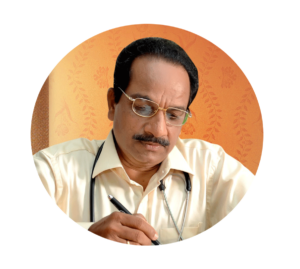What does being wise imply? It has nothing to do with a person’s IQ or degree, in my opinion. Someone who uses their common sense is wise. That sounds contradictory, right? After all, common sense is common. It’s about common knowledge, lessons, and wisdom. However, not everyone puts what they know into practice. In fact, it’s unusual to see someone using common sense. I know a few people who I believe to be wise, but none of them is geniuses. They’re just ordinary people who are dependable, experienced, calm, and good.
I’ll describe six habits/behaviours I’ve noticed through monitoring them in this essay.
1. Make decisions based on facts rather than assumptions.
The majority of people unconsciously make assumptions. We make assumptions if we are unsure about something. I’m making an assumption if I send someone an email regarding a business proposition and they don’t respond within two days, leading me to believe they aren’t interested. The perception that someone isn’t interested because they don’t answer right away is based on assumptions rather than facts. I can’t say if we have a contract or not until I hear an answer in that case. We make a lot of these assumptions in our daily lives. And the majority of our conclusions are based on our own personal opinions. The issue is that we can’t trust our views since they are so personal. Instead of interpreting things based on your ideas, opinions, and feelings, focus on facts. This is a quick shortcut you can use: “How do I know what I’m thinking is true?” question yourself when you observe your thoughts. You may discover that you need to ask more questions, conduct additional research, or simply wait for feedback.
2. Begin with the fundamentals.
Aristotle, an Ancient Greek philosopher, developed the phrase “thinking from primary principles.” In a conversation with Kevin Rose, Elon Musk stated this concept very well. Some people believe that thinking from the ground up implies not making assumptions. However, for Musk, it implies that you look beyond the facts.
“People would argue, ‘Historically, it cost $600 per kilowatt-hour, and it’s not going to be any better than that in the future,” he said in the interview. No, what are the batteries made of, you say. “OK, what are the material ingredients of the batteries?” is what the first principle means. The realities of today might sometimes limit you. The cost of batteries has been at a given level for a while, but that doesn’t imply it can’t go lower. Thinking from the ground up allows you to question the status quo. It’s observing what is and imagining what might be while bearing in mind the laws of human nature and physics. “Is there a better way we can do this?” wise people always ask.
3. Read widely and frequently.
Every sensible person I know is well-versed in a wide range of subjects, from history to economics to psychology. We’re all born with a remarkable brain that serves as the ideal tool for problem-solving. However, that instrument needs energy and nourishment to perform effectively. It’s simple to feed your body: just eat.
But what about mental nourishment? This is a topic that few people take seriously. The majority of people’s days are divided between work and recreation. When do you take care of your mind? It occurs when you are mentally challenged. That doesn’t happen very often at work or in social situations. And it certainly doesn’t happen when we’re watching something entertaining. Acquiring knowledge is the finest approach to challenging oneself intellectually. Reading a book is the simplest way to accomplish this. You can also read a book or enrol in a course. Every day, wise people do something that challenges their minds. They are voracious readers. They also read a lot because learning new things provides the most mental stimulation.
4. Give yourself plenty of time to make decisions.
Many people believe that smart people are “quick on their feet” in today’s fast-paced society. Making effective decisions, however, is not always a result of speed. Being a rapid decision-maker pays well in some situations.
You may have heard of the Archegos investment fund. In April 2021, the fund made headlines when it borrowed billions of dollars to make several high-risk stock trades. Goldman Sachs, Morgan Stanley, Credit Suisse, and Nomura were among the investment banks that Archegos borrowed money from. When the American investment banks discovered that Archegos’ bets had failed, they acted immediately. They sold all of their equities before the market started and other banks could react. As a result, Credit Suisse and Nomura suffered significant financial losses in the billions of millions. That is an example of when speed paid pays.
However, we frequently become speedy decision-makers by becoming sluggish decision-makers first. Although it may appear paradoxical, it is the same process as running a marathon. Nobody ever runs a marathon for the first time. Similarly, no effective decision-maker can be swift in their early years of employment. It’s critical to give yourself as much time as possible to make your decision. But not any longer. Otherwise, we risk procrastinating without cause.
5. Pay attention to others.
It’s amusing to me that the most oblivious people have trouble listening to advice, yet the sharpest people are usually the first to listen to everyone. When I was in college, one of my mentors questioned me about my thoughts on the 2008 financial crisis. “How do we proceed from here?” He inquired of me. What did I know as a freshman in college? Despite this, my mentor took the time to listen to my concerns. He was also genuinely interested. Since then, I’ve been acutely conscious of how frequently I’m interested in other people’s perspectives and insights. Almost no one seems to care, in my experience. The majority of people prefer to listen to their own voices and are uninterested in what others have to say. My wise friends are the polar opposite. They enjoy learning from others and are constantly open to new concepts.
6. Make mistakes and learn from them.
Mistakes are viewed as lessons by wise people. “Good judgement comes from experience, and a lot of that comes from faulty judgement,” Ralph Waldo Emerson observed. We all make poor decisions and errors. That isn’t the point. When you make a mistake, how do you react? That is crucial. Do you utilise it to educate yourself? Or do you get more risk cautious with each blunder you make? The former will aid your growth, while the latter will hasten your demise. It’s critical to understand that it’s okay to make errors as you go through life. The world’s smartest people do not generally make fewer blunders. They simply do not let their errors go to waste. All of the lessons I’ve learnt from wise people have one common thread: they make sure they acquire something nice and valuable out of every interaction. Everything they do feeds into the next thing they do.
This is how you start a positive cycle in your life. That suggests things will only grow better for you.



This blog is a treasure trove of wisdom for personal growth and positive change in habits.